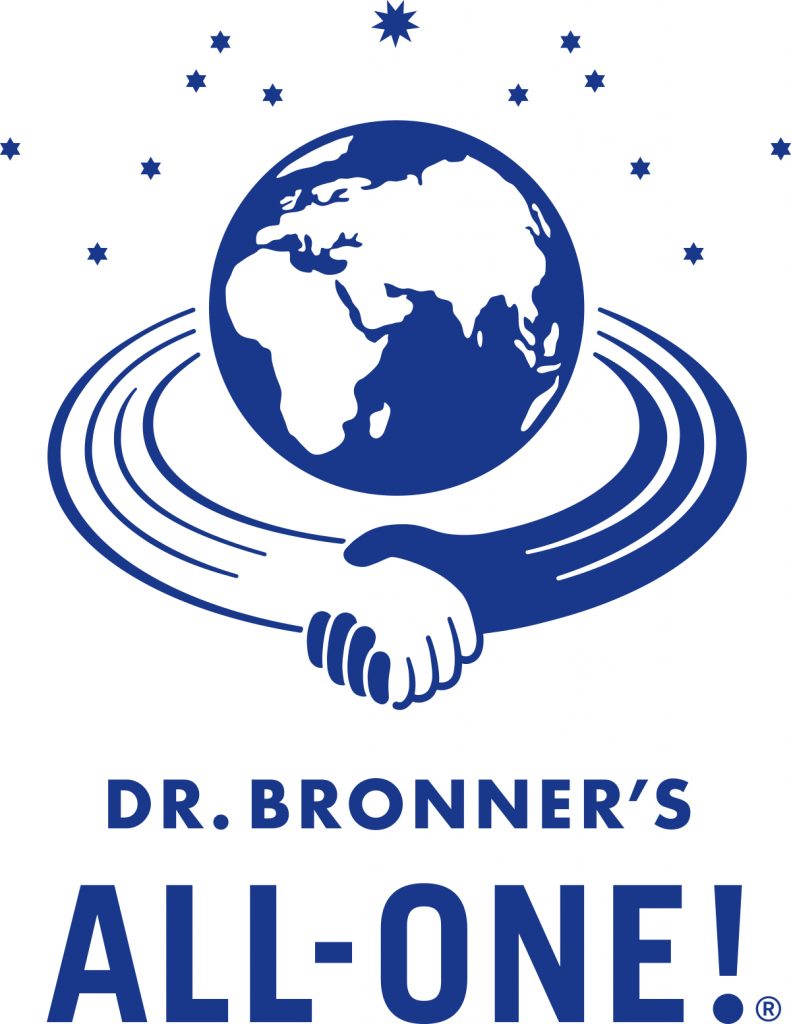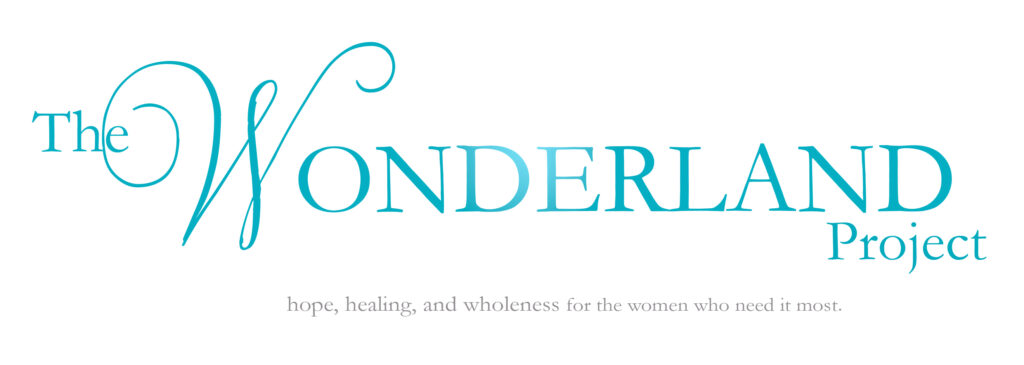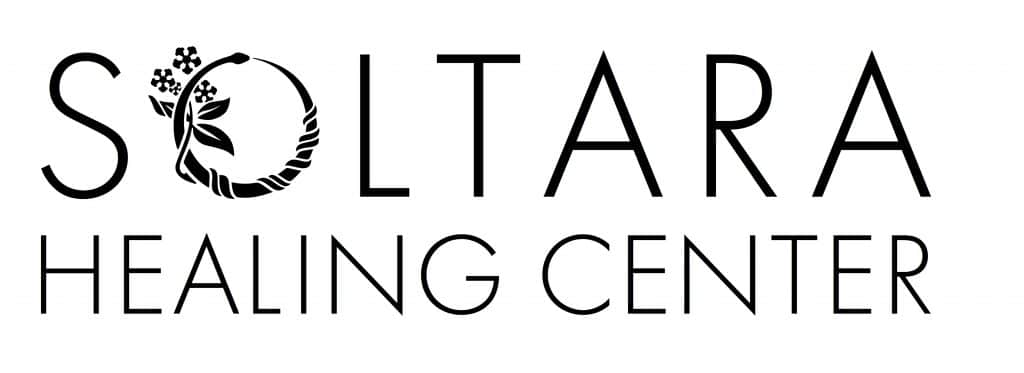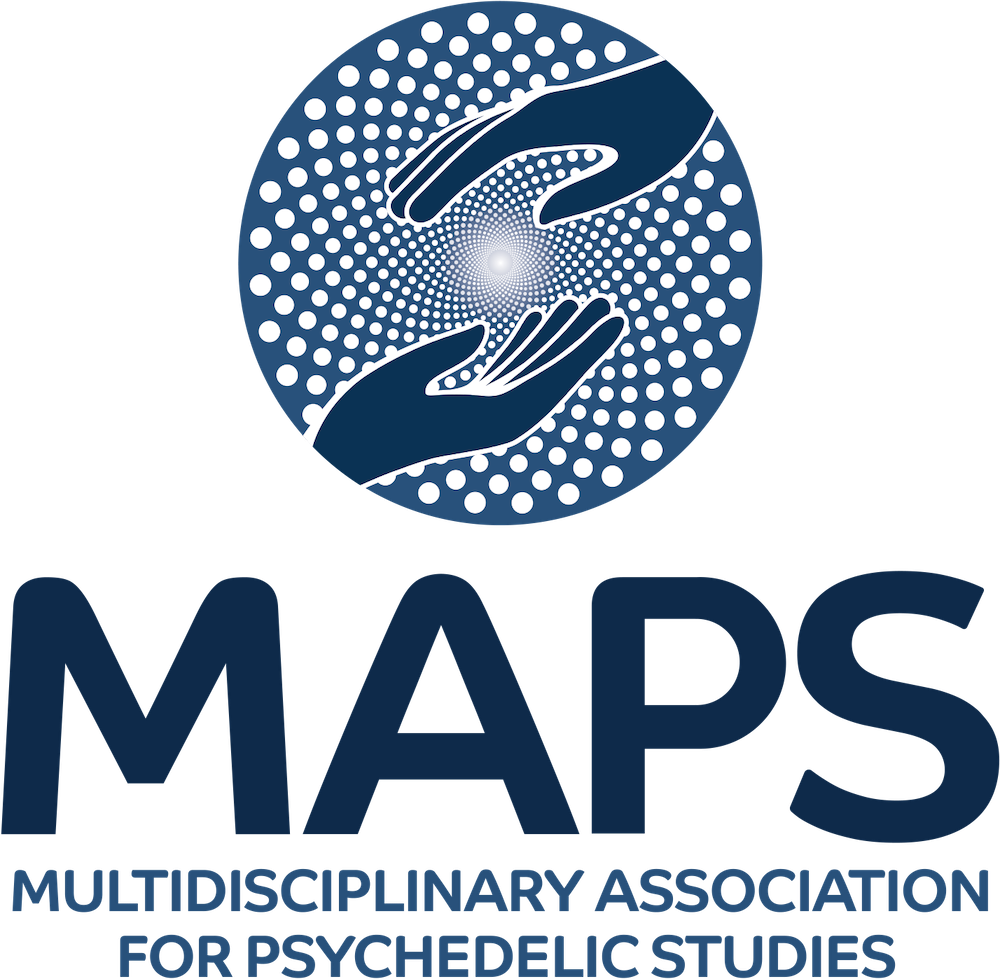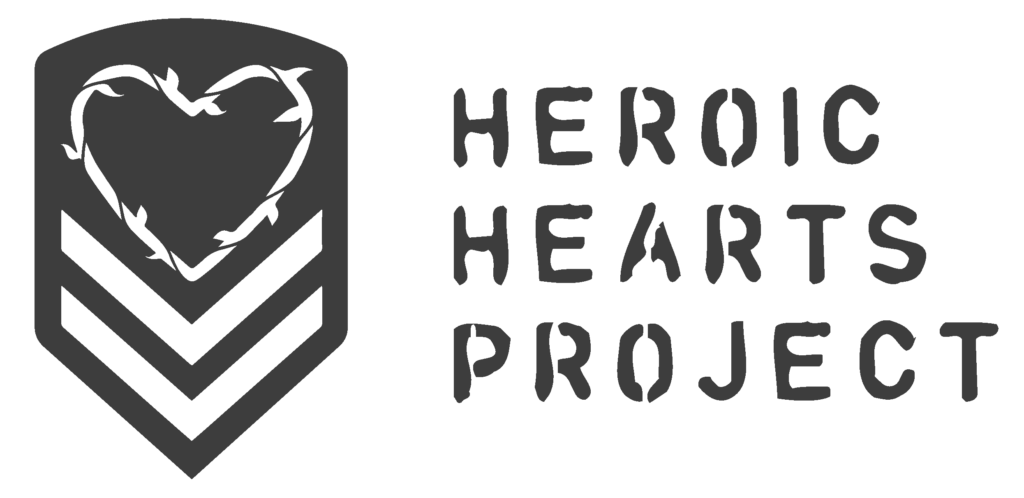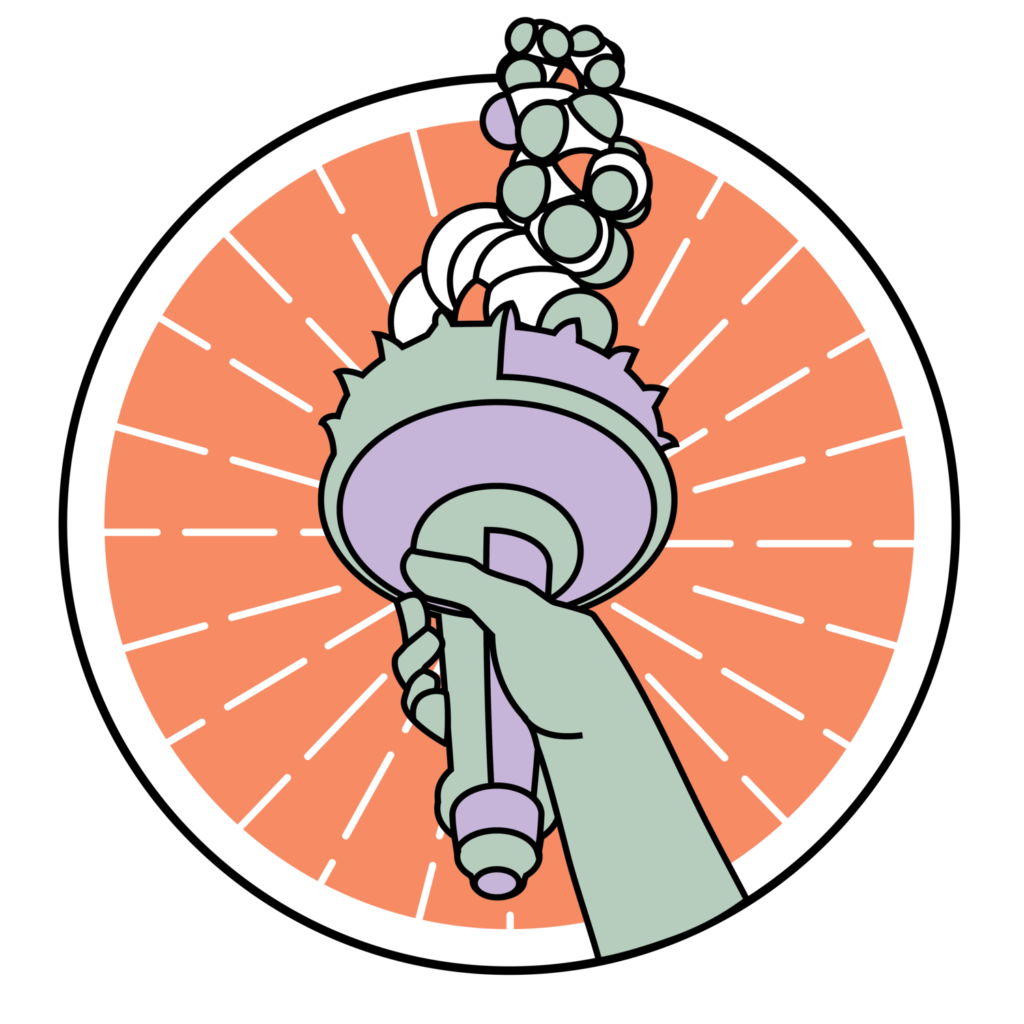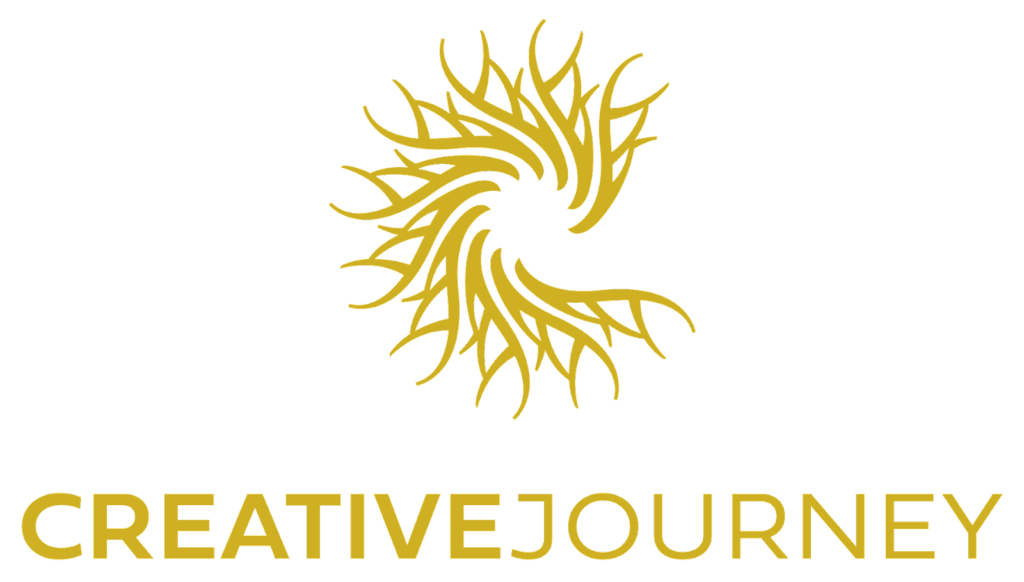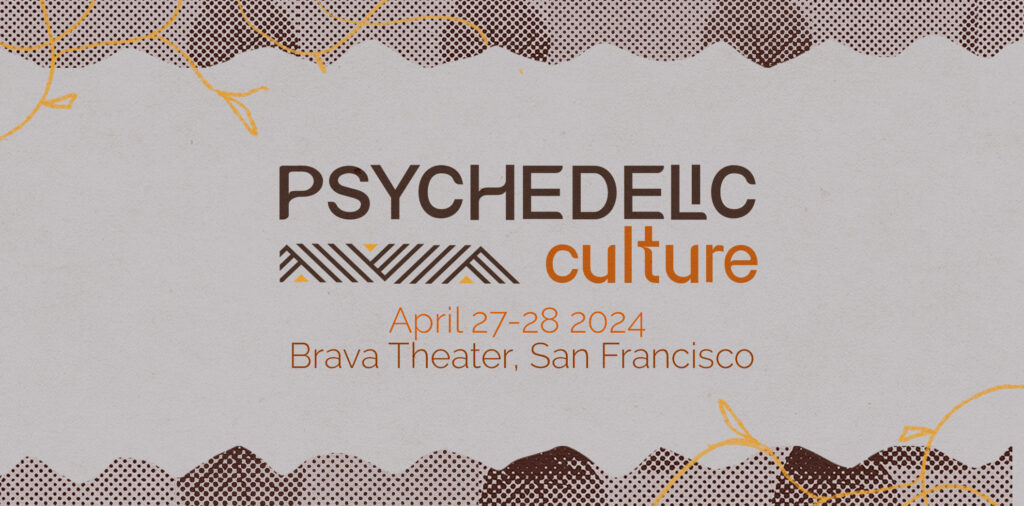
Cultivating Roots for Cultural Change
The Bay Area’s Annual Spring Conference on Plant Medicines & Psychedelic Science
April 27th and 28th, 2024
Brava Theater Center
2781 24th St.
San Francisco, CA 94110
Official Psychedelic Culture Afterparty.
Chacruna started producing large-scale conferences in Mexico in 2015, and then yearly spring conferences in the West Coast since 2018. Psychedelic Culture 2024 will continue our tradition of exploring cutting-edge themes that are largely absent from the mainstream psychedelic conversation, related to our main initiatives: Indigenous Reciprocity & Decolonial Dialogues, Psychedelic Justice, Protection of Sacred Plants & Cultural Traditions, and voices from the Global South. At this two day in-person conference, with 3 simultaneous tracks, Chacruna will convene comprehensive panels and experiential opportunities that will foster conversations around topics including: Indigenous voices, Indigenous reciprocity, biocultural conservation, religion and psychedelics, holding mindful ceremony, legislation reform, law and policy, racial equity and access, queering psychedelics, women in psychedelics, veteran leaders in psychedelics, disabled populations and psychedelics, perspectives from the Global South, critical reflections on psychedelic science, including psychedelic assisted therapy, sexual abuse, touch and ethics, and dialogues between neuroscience and shamanism. We will also offer a space for participation in music, dance, art circles, rapé (tobacco) ceremonies and affinity meet up groups. Chacruna’s interdisciplinary conferences are well known for bringing diverse voices together, combining intellectual vision and rigor, community, activism, heart and soul. In the midst of the so called psychedelic renaissance, it is more important than ever to promote dialogues between scientists and communities who have been truly involved with these medicines, to have knowledge about the proper ways to use and steward them. Come join us in the beautiful Brava Theater, a co-op led by women in the traditional Latin neighborhood of San Francisco, for another memorable experience!
Scholarships Available. Apply Here.
Click here to get 15% at the Phoenix Hotel during your time in San Francisco. Use the code: CHACRUNA
Sponsorship Opportunities Available
Sponsors receive recognition during the event for their support, strong presence on all of our social media channels and marketing campaigns, full display on our conference website, potentially in video recordings of the event and many other perks. All sponsorship donations are tax-deductible. For more information, write to Lorien at: [email protected]
Disclaimer: Chacruna is not endorsing sponsors regarding their mission or activities. Sponsorship does not include any decision-making influence on the content of any Chacruna event or publication, or any decision-making authority regarding Chacruna policies or actions. Every individual can and should make their own determination on the credibility or value of each sponsor and we solicit your respectful feedback regarding any concerns. The inclusion of links to other sites does not necessarily imply a recommendation or endorsement of the views expressed within them. Although legal issues will be discussed at the conference neither Chacruna nor any of the speakers are providing legal advice to participants. All conference presentations and materials are educational in nature. Chacruna does not advocate any entity violate state, federal, or local laws.
For more information write at: [email protected]
Conference Sponsors
Gold Sponsors
Silver Sponsors
Bronze Sponsors
Supporting Sponsor
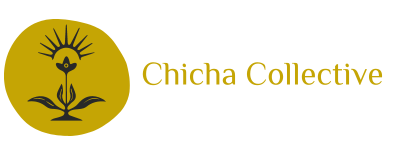
Media Partner
Community Partners
Synergetic Press, Fireside Project, Wixárika Research Center, Boston Psychedelic Research Group, Thank You Plant Medicine, OPEN Foundation, Global Psychedelic Society, Blossom, Sage Integrative Health, TheraPsil, Psychedelic Support, Psychedelics Integration, Discovery Sessions, Psychedelic Society San Francisco, Psilocybin San Francisco, The Psychedelic Pulse, ND Psychedelic, Autistic Psychedelic Community and Transnational Institute
Conference Presenters
-
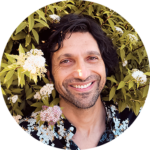
Adam Strauss
-

Adana Omágua Kambeba
-

Alejandra Barajas
-

Alex Horton
-

Allison Hoots
-

Amber E. Senter
-

Ann Harrison
-

Artionka Capiberibe
-

Beth Topczewski
-
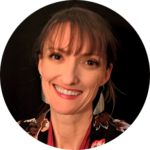
Betty Aldworth
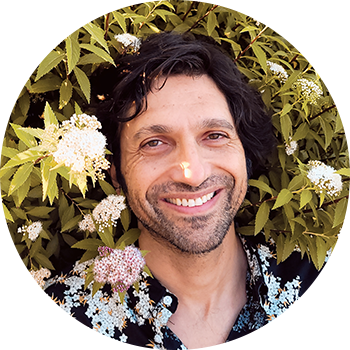
Adam Strauss

Adana Omágua Kambeba
Adana Omágua Kambeba (Portuguese name Danielle Soprano Pereira) belongs to the Kambeba people, also known as the Omágua people, which translates as the “People of the Waters”. The Omágua people are present in the Peruvian, Colombian and Brazilian Amazon. Adana comes from the Brazilian state of Amazonas. She was born and raised between two worlds; the Indigenous and non-indigenous. She graduated in medicine from the Federal University of Minas Gerais (UFMG). As far as she is aware, she is the first Indigenous woman of her people to graduate in medicine in this university, in addition to being the first doctor to overturn convention and obtain authorization to register both her names, her Portuguese and Indigenous, with the Federal Council of Medicine (CFM). She currently works in the city of Belo Horizonte at the Sofia Feldman Hospital, a benchmark hospital in humanized childbirth and women’s health care, at the Novo Aarão Reis Health Center in Family and Community Medicine. She also works as a prescriber of medical cannabis. In addition to her practice as a doctor, she is a researcher and is dedicated to the study of the cultural identity of her people. Additionally, she is an educator, speaker, and actress who has appeared in films and miniseries. She is currently in the process of training as a pajé (Indigenous medicine person) to be able to act both as a doctor and pajé in the Amazon region in the future. Adana sits on the Advisory Board of the Chacruna Institute for Psychedelic Plant Medicines.
Wednesday, June 9th, 2021 from 12-1:30pm PST
REGISTER FOR THIS EVENT HERE
There is growing enthusiasm in Jewish communities about possible ancient use and modern applications of plant medicine in Jewish spiritual development. Psychedelic Judaism introduce new potential modes of healing...
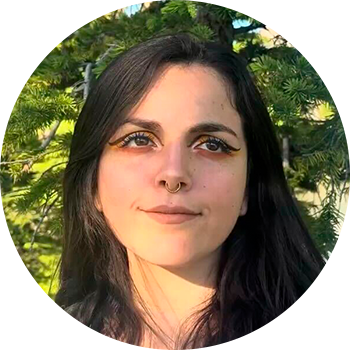
Alejandra Barajas
Wednesday, June 9th, 2021 from 12-1:30pm PST
REGISTER FOR THIS EVENT HERE
There is growing enthusiasm in Jewish communities about possible ancient use and modern applications of plant medicine in Jewish spiritual development. Psychedelic Judaism introduce new potential modes of healing...
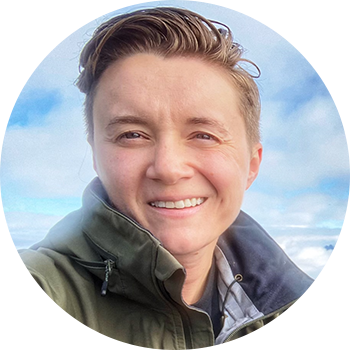
Alex Horton
Wednesday, June 9th, 2021 from 12-1:30pm PST
REGISTER FOR THIS EVENT HERE
There is growing enthusiasm in Jewish communities about possible ancient use and modern applications of plant medicine in Jewish spiritual development. Psychedelic Judaism introduce new potential modes of healing...

Allison Hoots
Wednesday, June 9th, 2021 from 12-1:30pm PST
REGISTER FOR THIS EVENT HERE
There is growing enthusiasm in Jewish communities about possible ancient use and modern applications of plant medicine in Jewish spiritual development. Psychedelic Judaism introduce new potential modes of healing...
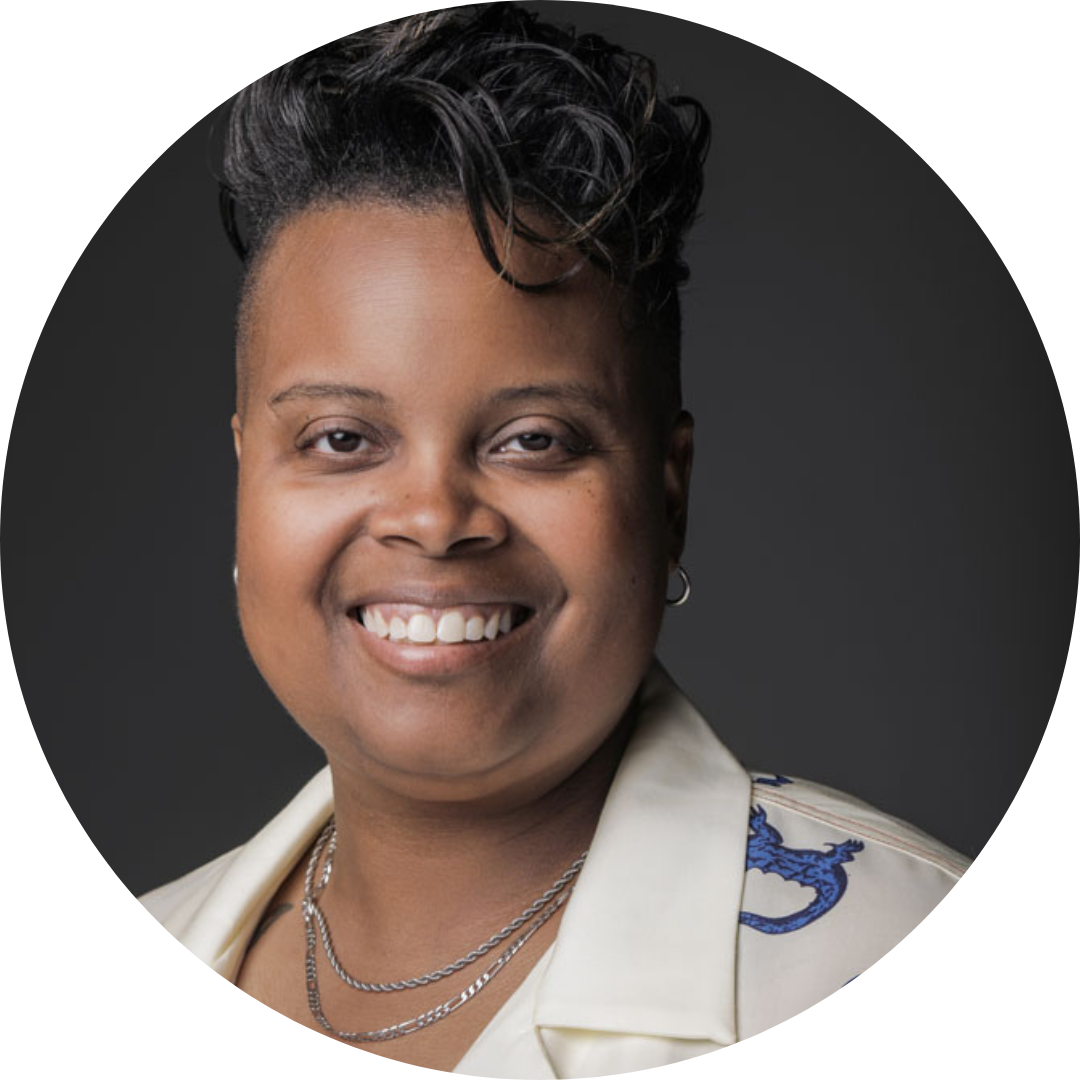
Amber E. Senter
Amber E. Senter is founder and CEO of Breeze Distro, a licensed lifestyle and infused cannabis product and distribution company located in Oakland, CA. She is also co-founder and executive director of Supernova Women, a women of color–led organization dedicated to empowering people of color to become self-sufficient cannabis industry shareholders.
Wednesday, June 9th, 2021 from 12-1:30pm PST
REGISTER FOR THIS EVENT HERE
There is growing enthusiasm in Jewish communities about possible ancient use and modern applications of plant medicine in Jewish spiritual development. Psychedelic Judaism introduce new potential modes of healing...
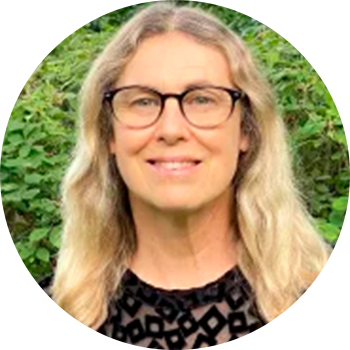
Ann Harrison
Ann Harrison is a journalist based in San Francisco. She has covered business, science and politics for numerous news organizations including Wired News, Fast Company, Agence France-Presse and several National Public Radio member stations. After working for several years as a technology reporter, Ann began writing about grey market economies. In 2020, Ann co-founded Lucid News where she presently serves as managing editor. She has an MS in science reporting from the Columbia University School of Journalism. In 2007, Ann began co-creating companies and organizations under the name Annie Oak. She founded the Women’s Visionary Congress and co-founded its parent organization the Women’s Visionary Council, the first nonprofit for psychedelic women. Recognizing the need to provide a quiet, comfortable space at music festivals, Ann created the Full Circle Tea House as a collaborative community art project. Ann is also the co-founder of Take 3 Presents, a San Francisco-based event production company that produces immersive art experiences. A long-time public health activist, Ann develops risk reduction strategies for event organizers. She is a resident of the San Francisco Haight-Ashbury neighborhood.
Wednesday, June 9th, 2021 from 12-1:30pm PST
REGISTER FOR THIS EVENT HERE
There is growing enthusiasm in Jewish communities about possible ancient use and modern applications of plant medicine in Jewish spiritual development. Psychedelic Judaism introduce new potential modes of healing...
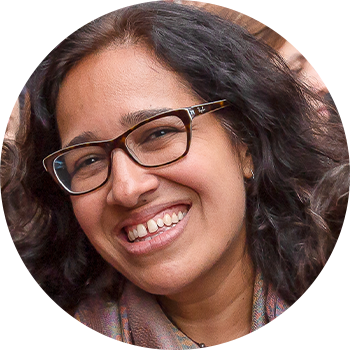
Artionka Capiberibe
Artionka Capiberibe obtained her doctorate in social anthropology from the Museu Nacional-UFRJ in 2009. From 2006–2007, she was a visiting researcher at the Centre d’Enseignement et Recherche en Ethnologie Amérindienne (Paris X-Nanterre). Since 1996, she has been working with the Palikur people, an Amerindian people living in the Amazon region on the border of Brazil and French Guiana. The main themes of her research are corporalities, cosmologies, social changes, and religious conversions. This last theme is the focus of her book, Baptism of Fire: The Palikur and Christianity (2007). Capiberibe has also conducted research and published articles on Amazonian development issues. She is a professor in the Department of Anthropology at Unicamp (State University of Campinas), São Paulo, Brazil. In 2022, she was a visiting scholar at UC Berkeley and a visiting professor at at the University of Paris Nanterre. She sits on Chacruna’s Advisory Board.
Wednesday, June 9th, 2021 from 12-1:30pm PST
REGISTER FOR THIS EVENT HERE
There is growing enthusiasm in Jewish communities about possible ancient use and modern applications of plant medicine in Jewish spiritual development. Psychedelic Judaism introduce new potential modes of healing...
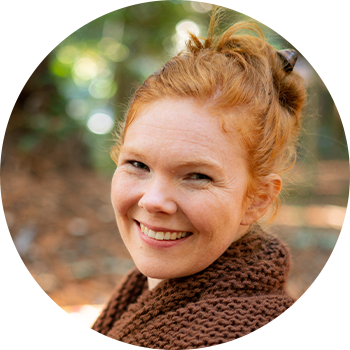
Beth Topczewski
Beth Topczewski is the Project Manager for the Sacred Plant Alliance and a spiritual counselor in Occidental, California. She is also a diviner, initiated according to the West African customs of the Dagara people. She guides seekers in developing meaningful relationships with nature spirits, healing ancestral wounds, and celebrating their connection to spirit. She is grounded by her own deep medicine path and has a special interest in syncretic manifestations of Catholicism and animism. Beth holds an MA in Somatic Psychology from California Institute of Integral Studies. She gives thanks to all her teachers, especially her husband and two children.
Wednesday, June 9th, 2021 from 12-1:30pm PST
REGISTER FOR THIS EVENT HERE
There is growing enthusiasm in Jewish communities about possible ancient use and modern applications of plant medicine in Jewish spiritual development. Psychedelic Judaism introduce new potential modes of healing...
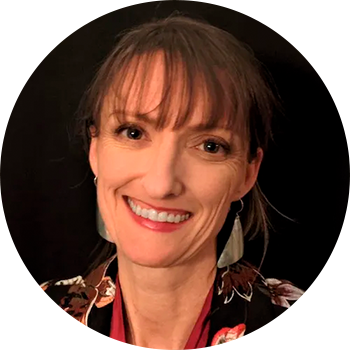
Betty Aldworth
Betty has served as Director of Communications at MAPS since 2020, where she leverages mass media and MAPS channels to educate the public about psychedelics. She was the Executive Director of Students for Sensible Drug Policy from 2014-2020, leading and supporting tens of thousands of young people united to build a more sensible future through reforming drug policies to be rooted in safety, justice, and education. Since 1999, Betty has specialized in community engagement, public relations, advocacy, and policy reform including as advocacy director for the successful 2012 Colorado Campaign to Regulate Marijuana Like Alcohol. An activist and advocate since childhood, Betty fights to end the drug war to end mass incarceration, reengage citizens in the political process, and build racial and economic justice. She serves as an advisor to DanceSafe and StoptheDrugWar.org and as the Treasurer of the Boards of Directors for the Marijuana Policy Project & MPP Foundation.
Wednesday, June 9th, 2021 from 12-1:30pm PST
REGISTER FOR THIS EVENT HERE
There is growing enthusiasm in Jewish communities about possible ancient use and modern applications of plant medicine in Jewish spiritual development. Psychedelic Judaism introduce new potential modes of healing...
Schedule
Saturday, April 27th, 2024
To read the contents from each panel click on the title.
Track 1
Morning MC: Stephanie Michael Stewart
9:00am – 10:00am – Opening Remarks – Bia Labate
10:00am – 10:50am – Indigenous and Ecological Reflections on the Roots of Plant Medicine – Mona Polacca and Miriam Volat
By reuniting Indigenous philosophies and modern ecology, we can explore the roots of plant medicine while forging a path towards healing ourselves and our planet. This panel will be a conversation between Mona Polacca, one of 13 Indigenous grandmothers, and Miriam Volat, an ecologist, philanthropist and bicultural conservationist. This unique discussion will explore finding a truly healthy way forward, grounded in earth-honoring values and environmental consciousness.
10:50am – 11:40am – Shaping our Future: Ensuring equity and access in the psychedelic renaissance – Darron T. Smith, Monnica T. Williams, NiCole Buchanan, Stephanie Michael Stewart and Joseph McCowan
As the psychedelic landscape evolves towards broader cultural acceptance, the glaring disparities and gaps in our movement shed light on critical discussions regarding equity and access. This panel explores the challenges and opportunities facing BIPOC communities within the psychedelic renaissance, emphasizing the necessity for pathways that ensure our increased access and ownership. Reflecting on the innovative spirit of our ancestors, who crafted sustenance from scarcity and created jazz from a fusion of sounds, this discussion underscores the importance of designing unique solutions that address our distinct experiences and hurdles. Highlighting and uplifting BIPOC resilience and creativity which has historically supported survival in the face of adversity, the panel advocates for the creation of spaces “for us, and by us,” emphasizing environments where BIPOC lead, feel safe, express themselves fully, and foster community. By drawing on our roots and harnessing our collective resilience, we envision a future where equity and access in the psychedelic ecosystem are not just ideals but realities, as BIPOC emerge as leaders shaping the psychedelic renaissance.
11:40am – 12:10pm – Break
12:10pm – 1:00pm – Traditional Indigenous Shamanism and Western Medicine: Contrasts and Nuances in Approaches – Adana Omágua Kambeba and Bruno Ramos Gomes
Adana Omágua Kambeba (Portuguese name Danielle Soprano Pereira) belongs to the Kambeba people, also known as the Omágua people, which translates as the “People of the Waters”. She comes from the Brazilian state of Amazonas, and was born and raised between two worlds: the Indigenous and non-indigenous. In particular, she graduated in medicine from the Federal University of Minas Gerais (UFMG), and as far as she is aware, she is the first Indigenous woman of her people to graduate in medicine in this university. In this presentation, Adana will speak on her many observations between these two worlds, and how these things may show up in the psychedelic movement. This presentation will touch on topics including autonomy and Indigenous right to practice traditional Indigenous medicine, moving inside and outside the villages alongside official scientific medicine, public health policies aimed at Indigenous populations, conflicts between health workers and traditional specialists, bridging the gap between prayer and medicine (an urgent dialogue between doctors and shamans inside hospitals), cultural appropriation, and where Indigenous peoples stand in the psychedelic movement.
1:00pm – 2:00pm – Lunch
2:00pm – 2:50pm – Touch in Psychedelic-Assisted Therapy: Ethical Considerations and Harm Reduction – Q Maxwell, Jamie Beachy, Elowyn J. Samadhi, Alejandra Barajas, and Genesee Herzberg
Therapeutic touch is an imperative practice that can provide deep healing for many people going through difficult experiences. There are many nuances and ethical considerations that are tied into this practice to ensure that this healing is not transformed into harm. When adding a psychedelic into the equation, there is an extra layer of precaution and care that must be taken to ensure the safety of everyone involved. As psychedelic-assisted therapy becomes a growing practice, it is important that practitioners and community members put safety guidelines into place to eliminate the occurrence of harmful experiences, such as sexual abuse, rupture, and reopening/furthering of trauma. This panel will explore questions including but not limited to: what are reasons for and for not providing ethical touch? What factors (cultural, race, trauma, gender identity, etc) need to be taken into consideration? What are some of the common ethical mistakes people make? What does repair look like after a rupture has been caused? How does touch fit into this broader topic of harm reduction? How do we handle touch between clients in group settings?
2:50pm – 3:40pm – Women in Psychedelics and Cannabis: Resilience, Power and Celebration – Mariavittoria Mangini, Betty Aldworth, Liana Sananda Gillooly and Licia Sky
The psychedelic and cannabis communities in the U.S., as well as the field of science in both, have historically been heavily male-oriented with a deep underrepresentation of women. Few women serve on boards of nonprofits and philanthropic organizations; this affects the production of knowledge on psychedelics and cannabis. A lack of diversity has not only influenced the course of scientific research, but also of drug policy reform activism. This panel celebrates the launch of Chacruna’s third book titled Women and Psychedelics: Uncovering Invisible Voices (published by Synergetic Press ain 2024) and Mujeres y psicodélicos: Descubriendo las voces invisibles (published by Lunaria Ediciones in 2022). These texts highlight women who have historically contributed to this field in many ways, whose stories have been overshadowed by their male counterparts. This panel aims to challenge the effects of this imbalance by hearing from women involved in psychedelic and cannabis spaces who have been inspired by pioneers who came before them, and who themselves currently serve as successful activists. We will start with historical reflections and balances from cannabis (2009-2020), and compare them to the current psychedelic boom, focusing on common trends such as the emergence of new corporations, attacks on DEI initiatives and how this will negatively impact black and brown involvement, as well women, disabled, and elderly people. We will further explore relationship to body and self, credentials vs life experience, and topics such as psychedelic elders and what they can contribute to current exploration in this space, alongside integrating young women in our communities and inter-generational movements.
3:40pm – 4:10pm – Break
4:10pm – 5:50pm – Indigenous Shamanism and Psychedelic Science: How Can We Bridge the Gap? – Sidarta Ribeiro, Brian T. Anderson, Laura Dev, Marcelo Leite and Adana Omágua Kambeba
One of the main challenges that psychedelic activists have tried to address is how to bridge the gap between the world of plant medicines and the emergent field of psychedelic science, between traditional ceremonial use and clinical and therapeutic settings, which is at the core of Chacruna’s mission. This panel will include perspectives of folks versed in both areas, recognizing both the harms and benefits that have been seen when trying to implement diverse cultural traditions into Western science and vice versa. By looking at the history of biomedical sciences, acknowledging Indigenous perspectives, and analyzing current globalization and commodification of psychedelic plant medicines, this panel will aim to bring the gap closer through engaging in meaningful and honest dialogue. We will explore questions such as: Should Indigenous healing become widely accessible to the non-Indigenous public? How are relationships between plants and people changing as psychedelic plants and rituals become global commodities? How are Indigenous ceremonies shifting as they are adapted for and appropriated by non-Indigenous participants? How does healing occur in Western hospital settings and in ceremonial settings? How have biomedical sciences failed to recognize the reality of spiritual experiences, while psychology and neuroscience provide a basis for acknowledging these entities as real embodied phenomena? How can biomedical research be community-engaged and address issues that are priorities for communities that traditionally use sacred plants? What safety data can be meaningful to both communities and health authorities and regulators, and how can dialogue on safety between these two kinds of stakeholders be fostered in the name of crafting reasonable public policies on sacred plants?
5:50pm – 6:00pm – Break
6:00pm – 6:30pm – Psychedelic Culture Wrap up: Music, Art, Dance and Community – Adana Omágua Kambeba, Jodi Lomask and Leopardo Yawa Bane
Dance, music and art are deeply intertwined with psychedelic experiences and the many cultural traditions that use psychedelic plant medicines. We are excited to close the first day of the conference with performances which display these relationships through different perspectives and formats. First, we will have a performance by Jodi Lomask, involving sculpture, dance and music. Jodi began exploring the intersection of science, environmentalism and new technology through dance, sound and sculpture. She designs motion sculptures that are only complete when the human body interacts with them, and in this performance, she will give a brief explanation of the intersection between her art practice and psychedelics, followed by a dance she created. After this performance, we will have a song performance by Adana Omágua Kambeba, who belongs to the Kambeba people, also known as the Omágua people, which translates as the “People of the Waters”. We will also have a song performance by Leopardo Yawa Bane, who is the son of a traditional chief of the Huni Kuin (an Indigenous group also known as the Cashinahua). We welcome you to come together with us in closing out this wonderful first day with this beautiful symphony of performances.
Track 2
Morning MC: Danielle Herrera
10:00am – 11:40am – Voices from the Global South: Historical and Contemporary Perspectives of the Psychedelic Renaissance – Nidia A. Olvera Hernández, Citlali Rodríguez, Bruno Ramos Gomes, Diana Negrín da Silva, Lígia Duque Platero and Marcelo Leite
As the psychedelic renaissance quickly grows in the Global North and Western communities, many other perspectives are overlooked in regards to the historical and contemporary uses of psychedelic plant medicines. This panel in particular will look at the perspectives of those from the Global South, who have a long history of working with these psychedelic plant medicines. The panelists, who have studied and researched plant medicines extensively, will introduce their current research and their research interests. These research topics range from peyote and traditional medicine in Mexico, Jurema (a plant and a religious afro-Brazilian expression in Brazil), ayahuasca urban Indigenous and non-Indigenous networks, work with vulnerable populations, iboga and ibogaine therapeutic and spiritual underground uses and clinical work in Brazil. This panel will also explore questions including but not limited to: What are some of the specificities of the psychedelic renaissance in the Global South? What are the political and economical implications of the psychedelic renaissance in Latín América? What are the ritual uses of entheogens sacred plants as a focus of resistance against the colonial tragedy, past and present? What are the effects of biopiracy and cultural appropriation?
11:40pm – 12:10pm – Break
12:10pm – 1:00pm – Psychedelics Are No Joke – Adam Strauss
Adam Strauss performs an excerpt from his new solo comedy show, Something Is Wrong with Adam Strauss, which chronicles how a mushroom trip on Mt. Tam led to love, loss, and the realization that the only thing more painful than change is staying the same. After, Adam will discuss the intersections of psychedelics, comedy and OCD, and will also take questions from the audience.
1:00pm – 2:00pm – Lunch
Afternoon MC: Jaz Cadoch
2:00pm – 3:40pm – Who benefits from the Psychedelic ‘Renaissance’? Indigenous Reciprocity, Decolonization, and Plant Medicine Conservation – Osiris García Cerqueda, Christine Diindiisi McCleave, Leopardo Yawa Bane, Citlali Rodriguez, Bruno Ramos Gomes and Joseph Mays
This panel asks how we can close the gap between the promises of psychedelics as defined by researchers, investors, and clinicians contrasted with the needs of community stakeholders, exploring what “reciprocity” means in response to the colonial structures of increasingly globalized plant medicine spaces. We will address issues surrounding disparate participation in the so-called “psychedelic renaissance” between communities in the Global North (GN) and Global South (GS), focusing on Indigenous peoples’ status in a psychedelic ecosystem consisting of diverse stakeholders with different ontological frameworks. The panel will analyze political, economic, ecological and cultural relationships, challenging assumptions regarding the use of the term “reciprocity” and taking a biocultural approach in the pursuit of effective advocacy and education. Partnerships between investors in the GN and GS often function to re-create and reinforce exploitative dynamics; we will discuss the causes and implications of impoverished economic settings where cultural resources are commodified, considering the inherent limitations of capitalist market-based models for access and benefit-sharing agreements, whether non-profit, corporate or non-governmental organizations. As psychedelic science grapples with the relational world of diverse beings Indigenous plant medicine refers to, we engage in a modest and mindful exercise to re-think and explore the possibilities of decolonization in the psychedelic space with insight from Chacruna’s Indigenous Reciprocity Initiative of the Americas. We will propose a new grassroots model focused on community autonomy for confronting the disempowering dynamics of conventional philanthropy, moving away from cynicism and helplessness towards embodying reciprocity in all our work.
3:40pm – 4:10pm – Break
4:10 – 5:50pm – Guide to RFRA: Protecting Psychedelic Churches through Legal and Ethical Practice – Jon Dennis, Martha J. Hartney, Sean McAllister, Joe Tafur and Allison Hoots
Today, there are hundreds of psychedelic churches all over the country who are able to use psychedelic plant medicines in a legal context through the protections of the Religious Freedom and Restoration Act (RFRA). RFRA rights may be a claim or defense when burdened by the government and may become an affirmative legal right with an exemption from the Controlled Substances Act. Chacruna created its Guide to RFRA and Best Practices for Psychedelic Plant Medicine Churches in 2021, which provides accessible knowledge to understand the framework through which protection is offered. This panel will highlight important elements of this guide, important insights to consider when creating a psychedelic church, and provide real life examples of litigation cases with psychedelic churches. This panel will also explore questionable practices by churches, like heavy commercialization, pay to play memberships, financial self dealing and others.
Track 3
Morning MC: Chara Caruthers
10:00am – 11:40am – Morning rapé ceremony – Leopardo Yawa Bane and Glauber Loures de Assis
Chacruna is proud to provide a new offering for the psychedelic community, a direct contact with the universe of sacred plants, native people and their traditions that is sometimes overlooked in the global circuit of psychedelic conferences. With the blessings and permission of some of our partners in the Amazon, we bring traditional medicines and crafts to our table to help raise public awareness about the local uses and sociocultural aspects of sacred plants, as well as to honor Indigenous peoples and their traditions. Rapé snuff is a sacred medicine for several native peoples of the Brazilian and Western Amazon, used not only ritually but also on festive and social occasions.
11:40am – 12:10pm – Break
12:10pm – 1:00pm – Students in Psychedelics Meetup Session – Kat Murti and Gina Giorgio
Chacruna is happy to provide meet up session during the conference for various communities within the psychedelic field. These sessions will be hosted by leaders in the field who are a part of these communities, with the hope that these groups will provide: in-person networking, a more intimate discussion/conversation with experts in the field, sharing of resources in the psychedelic space for folks within this community, sharing of upcoming relevant projects for people to look out for, insights and advice for navigating the psychedelic field as someone in this community, a space to foster relationships that might help create new friendships and professional collaborations, and plant seeds that will blossom and change the future of this movement.
1:00pm – 2:00pm – Lunch
Afternoon MC: Luiza Mugnol
2:00pm – 3:40pm – Queer Meetup Session – Justin Natoli and Steven Huang
Chacruna is happy to provide meet up session during the conference for various communities within the psychedelic field. These sessions will be hosted by leaders in the field who are a part of these communities, with the hope that these groups will provide: in-person networking, a more intimate discussion/conversation with experts in the field, sharing of resources in the psychedelic space for folks within this community, sharing of upcoming relevant projects for people to look out for, insights and advice for navigating the psychedelic field as someone in this community, a space to foster relationships that might help create new friendships and professional collaborations, and plant seeds that will blossom and change the future of this movement.
3:40pm – 4:10pm – Break
4:10pm – 5:00pm – Rhythms of Resistance: Celebrating identity through community, dance and psychedelics – Matthew Brinkley and Mia Sarno
As many psychedelic academics know, dance music culture is a significant presence within the psychedelic ecosystem. People often have their first experiences with non-ordinary states of consciousness within the dance community. Dance events provide spaces for somatic release, collective celebration, and close community that promote wellbeing and even trauma healing for many. Additionally, both psychedelics and dance communities give space to release limiting beliefs about expression and identity, and instead promote positive exploration and expression of the Self. There is a long history of rave and dance music spaces as refuges for marginalized groups, especially queer people of color, who founded many of the dance styles, sounds and spaces we still groove to today. This breakout session will interactively explore the intersection of psychedelics, music, dance, identity-based healing, and self-expression.
5:00pm – 5:50pm – Psychedelic Therapists Meetup – Jamie Beachy and Joseph McCowan
Chacruna is happy to provide meet up session during the conference for various communities within the psychedelic field. These sessions will be hosted by leaders in the field who are a part of these communities, with the hope that these groups will provide: in-person networking, a more intimate discussion/conversation with experts in the field, sharing of resources in the psychedelic space for folks within this community, sharing of upcoming relevant projects for people to look out for, insights and advice for navigating the psychedelic field as someone in this community, a space to foster relationships that might help create new friendships and professional collaborations, and plant seeds that will blossom and change the future of this movement.
Psychedelic After Hours Reception – Saturday, April 27th, 6:30pm-8:00pm
This post-conference reception in the Brava lobby will be an opportunity for everyone to network and socialize. It is a good opportunity to unwind, process panels you experienced, meet speakers who are present, meet others involved in the community, and more. There will be some snacks and beverages provided.
Sunday, April 28th, 2024
Track 1
Morning MC: Mia Sarno
10:00am – 10:50am – Intersections between Indigenous Traditions, Religion and Spirituality in the Psychedelic Renaissance – Henrique Fernandes Antunes, Sam Shonkoff, Ernesto Londoño Emily Sinclair and Ismail Lourido Ali
This panel will focus on the issues that emerge from the intersection of indigenous traditions, religion and spirituality in the current landscape of the psychedelic renaissance. Considering the complexity of the subject, the presenters will focus on themes such as the role of psychedelics in creating new practices that bridge the gap between Western and non-Western traditions, and what are the practical and epistemic impacts of this new phenomenon. They will also explore how Western notions of religion, and spirituality have informed the psychedelic field creating a normative frame that overemphasizes cosmological aspects of the experience, in detriment of culturally informed modes of perception and embodied practices. The aim, therefore, is to highlight the potentialities of these intersections, as well as its controversies.
10:50am – 11:40am – Queering Psychedelics: Looking Towards an Informed and Inclusive Future – Clancy Cavnar, Justin Natoli, Shelby Clark and Stephanie Michael Stewart
Historically, psychedelics have been used by LGBTQA+ communities as a tool for self-therapy and a creative source among cultural outcastes. Psychedelics in the queer community have been used for exploration, liberation, healing, transformation, and a way to generally understand and accept oneself and build community. While psychedelics have so much potential to be beneficial for queer folks and other marginalized communities, it is also important to address and dismantle sexist, patriarchal, heteronormative, transphobic, and homophobic forms of oppression that are present in the psychedelic movement, and historical harms that have occurred. Questions to be explored include but are not limited to: What is queer? How can psychedelics help heal queer trauma? What is invisible queerness in hetero-presenting relationships & parenting? How can clinicians and researchers encourage the participation of queer people in research? How can they better encourage and serve queer people, recognizing past attempts at psychedelic conversion therapy? Looking at the Native American Church, queer culture, and Indigenous groups in Brazil who drew identity from their contemporary ayahuasca use, how can psychedelics be used by communities who are oppressed to regain a sense of identity and purpose? How can we prevent the patriarchal takeover of sacred medicines, thwarting them from being used as tools to open doors to greater wealth and power for a privileged few?
11:40am – 12:10pm – Break
12:10pm – 1:00pm – Psychedelic Parenthood: Why are we leaving children and adolescents out of the psychedelic renaissance? – Rebecca Kronman, Glauber Loures de Assis, Jamie Beachy and Emily Sinclair
The field of psychedelics is growing fast and widely, and thousands of the individuals forming part of this movement happen to be mothers, fathers and caregivers to children . Ethnographic reports indicate that the psychedelic experience can help these people deal with challenging realities such as imposter syndrome and maternal guilt and positively re-signify the experience of parenting. We also know that there are several traditional cultures where psychedelics are an integral part of community life, and may also be used during pregnancy and childbirth, as is the case of the Santo Daime tradition of midwifery, and in breastfeeding, as practiced by Wixárika mothers. Despite this, the Western psychedelic mainstream still has difficulties in including children, adolescents, and psychedelic families in its spaces, discussions, and scientific research. Based on the direct empirical experience of the panelists, who all come from different backgrounds including Brazil, Europe and the US, this presentation offers reflection which demonstrate the need for us to start talking more about psychedelic parenthood in the Psychedelic Renaissance. They address both the potential and risks of scientific research and therapy with psychedelics for children and adolescents, and social, economic, and decolonial aspects related to the inclusion of psychedelic families, especially children and mothers, in the psychedelic field.
1:00pm – 2:00pm – Lunch
2:00pm – 2:50pm – Breaking Barriers: A Deaf Psychologist’s Perspective on Psychedelic Therapy Access – Rachel Filion
Embark with me in a journey into the world of deafness/hearing loss, where you will discover key concepts, debunk myths, and learn about the challenges and the unique needs of this population. Gain insights into audism/capacitism, power dynamics, and the savior complex that can be found among hearing professionals. Uncover the obstacles faced by Deaf professionals and facilitators in the psychedelic world and glean from my personal experiences in Deaf-friendly ayahuasca retreats in Peru. Learn about how to include a deaf or hard-of-hearing participant in a PAT therapy/research setting or in a psychedelic retreat. Together, let’s redefine what is possible and pave the way for a more inclusive psychedelic community!
2:50pm – 3:40pm – Psychedelic Healing for Veterans: Policy, Equity & Access – Alex Horton, Jason Thompson and Isaac Gilmore
When it comes to clinical trials regarding psychedelics, one of the main populations being served are Veterans. There has been extensive research to show the potential of psychedelics in helping with PTSD, which is a major condition that affects many Veterans. As with many other intersectionalities in therapeutic settings, there are many different factors to consider when working with Veterans. This panel will focus on a wide range of topics, considerations and perspectives, including but not limited to: equity, access, and policy changes within the US and how these impact Veteran care, Veterans who are also sexual and gender minorities, Veterans working ensure proper implementation & policy changes occur, the importance of preparation and integration, the use of psychedelic medicines in supporting the mental and emotional healing of first responders, and personal stories of healing with psychedelics.
3:40pm – 4:10pm – Break
4:10pm – 5:00pm – MAPS and the Global Future of Psychedelia: What is Next? – Ismail Lourido Ali, Betty Aldworth, Steven Huang and Lindsay Robinson
The Multidisciplinary Association for Psychedelic Studies (MAPS) has been one of the leading organizations in the psychedelic field since 1986. MAPS has had a hand in research, clinical trials, policy and education over the past 40 years, and has played a major role in the evolution of the psychedelic field as a whole. This panel will be a conversation between some core MAPS’ members, including: Betty Aldworth, Director of Communications & Post-Prohibition Strategy at MAPS, Ismail Lourido Ali, Director of Policy and Advocacy at MAPS, Steven Huang, Director of Social Justice at MAPS and Lindsay Robinson, Director of Development at MAPS. MAPS has incubated Lykos Therapeutics, which will lead MDMA as a prescribed medicine through FDA approval, and Zendo Project, which provides harm reduction and peer support at psychedelic festivals. What is next on MAPS’ horizon? This conversation will include a wide array of topics ranging from the current state of psychedelia from a 40+ year perspective, the future of psychedelia, the future of MAPS, ballot measures, what a “post-prohibition” world may look like, access models, FDA approval of psychedelics, and global access. As the world of psychedelics quickly expands, we are happy to have one of the most involved perspectives shed light onto how far we have come and where exactly we are headed in the future of psychedelics.
5:00pm – 5:30pm – Closing Remarks – Indigenous Reciprocity Initiative (IRI) short video screening, Kanyon Sayers-Roods, Bia Labate, Clancy Cavnar and The Chacruna Team
Track 2
Morning MC: Danielle Nova
10:00am – 11:40am – Sacred Plant Alliance (SPA): Religious Freedom and Legal Protections in the Plant Medicine Space – Allison Hoots, Beth Topczewski, Bob Otis and Rob Heffernan
Sacred Plant Alliance, Inc. (SPA) is an association of churches dedicated to mutual support and education and to ensuring the continued recognition of their right to religious exercise and the continued legal protection of the sincere, safe, and ethical ceremonial use of plant medicine sacraments within the United States. This panel will be composed of leadership and a member of Sacred Plant Alliance, an association of churches dedicated to mutual support and education and to ensuring the continued recognition of their right to religious exercise and the continued legal protection of the sincere, safe, and ethical ceremonial use of plant medicine sacraments, to discuss many important issues that they address, such as: What are the roots of SPA? Why is SPA so needed within the plant medicine space? How has the field of religious use evolved over the last few years? What are the primary issues that churches and religious groups seek help with? How do ethics, codes of conduct and accountability through self regulation affect public policy and law?
11:40pm – 12:10pm – Break
12:10pm – 1:00pm – Psychedelic Patents: Understanding and Decolonizing Intellectual Property (IP) Systems – Chris Byrnes, Laurel Kilgour and Hailey Maria Salazar
As psychedelics become mainstream, many people and corporations in the US have been jumping to research certain psychedelic compounds for the purpose of patenting these substances, as a result of the industrialization of psychedelics. This has become increasingly worrying, as some side effects of this include implementing ideals of colonialization, extractivism and other inequities. This panel of experts will go through the history of the Intellectual Property (IP) system and discuss its settler-colonial origins. Given this history and its roots, the panel will also explore ways in which we can reimagine how the IP system can be used to, in turn, empower Indigenous peoples and reciprocity, protect plant medicines, and embrace epistemologies that don’t fit in the European paradigm. It is more important now than ever to ensure that decolonial frameworks are in place as psychedelic capitalism expands.
1:00pm – 2:00pm: Lunch
Afternoon MC: Wael Garas
2:00pm – 3:40pm – Psychedelic Policymaking: Lessons from the Past and Promises for the Future – David Bronner, Victor Cabral, John Walsh, Ann Harrison and Tamar Todd
While there is increasing advocacy for psychedelics and plant medicines in the US and beyond, it is important to look at the history of different types of legislation efforts to inform current policy making for the future of psychedelic access for the general public. This panel will address structural elements of the drug war, including the international scheduling system and the regulation of Cannabis. We will also take a peek at the first regulated models that are being implemented in the US, in places such as Oregon and Colorado. The primary focus will be how to mitigate the impacts of corporations, and consider all of the different intersections that may arise when thinking about inclusion, diversity, equity and access. The panel will touch on questions such as: What can we learn from past scheduling efforts, such as how the coca leaf came to be criminalized and slated for elimination under the UN 1961 Single Convention on Narcotic Drugs? How can policymakers involve historically excluded communities in the decision-making process regarding the regulation and implementation of psychedelic frameworks, ensuring their voices are heard and needs addressed? How can laws and policies empower historically excluded communities to have greater control over their own drug policies, including the ability to implement community-based harm reduction strategies? How can policies acknowledge and address the historical injustices and systemic oppression that have disproportionately affected marginalized communities in the context of drug criminalization?
3:40pm – 4:10pm: Break
4:10pm – 5:00pm – Indigenous Peoples Movement in Brazil: Body and Word as Tools for the Right to Land and Life – Artionka Capiberibe
When it comes to the psychedelic field, although there seems to be an emergent interest in problems such as cultural appropriation and the harms it brings, Indigenous voices and their genuine concerns are often ignored or minimized. As a result, real political issues and struggles are hardly acknowledged. This presentation will go through Indigenous rights in Brazil, outlining a history of their constitution at the end of the 20th century and the beginning of the 21st. We will analyze how the Indigenous struggle for these rights has taken place over time, and reflect on the importance of the body and the word in the political action of Indigenous people, especially women leaders. The legal construct of “Indigenous Land” is essentially the issue around which tensions regarding Indigenous peoples are mobilized. At the root of these disputes are radically opposed models of relating to the planet (fauna, flora, humanity). Against the backdrop of the confrontation between these models, this presentation will focus on Indigenous action in the face of attempts to deprive them of their rights to land, which in practice means the right to life itself. We hope this presentation will give a better overview of the Indigenous struggles in Latin American and how the psychedelic movement can stand in solidarity with it.
“
Track 3
Morning MC: Joseph Rhea
10:00am – 11:40am – Harm Reduction Meetup Session – Erica Siegal, Valerie Beltran and Juliana Mulligan
Chacruna is happy to provide meet up session during the conference for various communities within the psychedelic field. These sessions will be hosted by leaders in the field who are a part of these communities, with the hope that these groups will provide: in-person networking, a more intimate discussion/conversation with experts in the field, sharing of resources in the psychedelic space for folks within this community, sharing of upcoming relevant projects for people to look out for, insights and advice for navigating the psychedelic field as someone in this community, a space to foster relationships that might help create new friendships and professional collaborations, and plant seeds that will blossom and change the future of this movement.
11:40pm – 12:10pm – Break
12:10pm – 1:00pm – Co-Creating Psychedelic Mandalas and Exploring Psychedelic Design – Clancy Cavnar and Karina Alvarez
In this breakout session, we will address a topic that is often invisible in the psychedelic ecosystem and the circuit of conferences: the role of art in healing, inner exploration, pleasure, aesthetics and community building. In the first part, participants will use the art of mandala-making as a bridge between the conscious and subconscious mind. We’ll discuss the symbolism, colors, and patterns that emerge from our inner landscapes, a practice that allows us to express aspects of psychedelic experiences in a non-verbal, visual language. Mandalas can be used both to prepare and to integrate psychedelic experiences. We will also offer the option for collage with magazine cutouts as a way to prepare and to integrate psychedelic experiences. Participants will be provided with paper and art supplies and later will give a brief description of their creations. In the second part, participants will be offered an opportunity to meet Chacruna’s web designers, and learn first hand about their experience in producing design inspired by psychedelic experience, trying to retain the essence of the mystical and the journeying, without vulgarizing, or commodifying or banalizing the sacred.
1:00pm – 2:00pm – Lunch
Afternoon MC: Graham Pechenik
2:00pm – 3:40pm – BIPOC Meetup Session – Joseph McCowan and Darron T. Smith
Chacruna is happy to provide meet up session during the conference for various communities within the psychedelic field. These sessions will be hosted by leaders in the field who are a part of these communities, with the hope that these groups will provide: in-person networking, a more intimate discussion/conversation with experts in the field, sharing of resources in the psychedelic space for folks within this community, sharing of upcoming relevant projects for people to look out for, insights and advice for navigating the psychedelic field as someone in this community, a space to foster relationships that might help create new friendships and professional collaborations, and plant seeds that will blossom and change the future of this movement.
3:40pm – 4:10pm – Break
4:10pm – 5:00pm – Drug Reform Meetup Session – Jason Ortiz and Tatiana Luz Quintana
Chacruna is happy to provide meet up session during the conference for various communities within the psychedelic field. These sessions will be hosted by leaders in the field who are a part of these communities, with the hope that these groups will provide: in-person networking, a more intimate discussion/conversation with experts in the field, sharing of resources in the psychedelic space for folks within this community, sharing of upcoming relevant projects for people to look out for, insights and advice for navigating the psychedelic field as someone in this community, a space to foster relationships that might help create new friendships and professional collaborations, and plant seeds that will blossom and change the future of this movement.
Official Psychedelic Culture Afterparty – Sunday, April 28th, 6:00pm-2:00am
We will have an official Psychedelic Culture afterparty on Sunday night from 6pm-2am at the Monarch SF with drinks, DJs, live music, photo booths, conference attendees and the general public. You can purchase a tickets here. Please note that you must arrive before 9pm to get access to the second half of the party. Feel free to invite anyone!
Standard Refund Policy:
Full refund: You can receive a full refund of your registration fee, minus a $10 administration processing fee, up to 60 days before the online conference start date.
Partial refund: For cancellations made between 59 and 7 days before the conference start date, you will receive a 50% refund of your registration fee, minus a $10 administration processing fee.
No refunds: Unfortunately, we cannot offer refunds for cancellations made less than 7 days before the conference start date. This is due to our final preparations and commitments made based on confirmed attendee numbers.
Force Majeure Events:
In the event of a force majeure event, such as natural disasters, travel disruptions, or government restrictions that make attending the conference impossible, we will offer a full refund of your registration fee regardless of the cancellation date. Please provide documented evidence of the force majeure event.
Transferring Registration:
You can transfer your registration to another attendee up to 7 days before the conference start date Please contact us with the name and email address of the new attendee.
No-Shows:
No refunds will be issued for registrants who do not attend the conference for any reason.
How to Request a Refund:
To request a refund, please send an email to [email protected] with your full name, registration ID, and reason for cancellation. We will process your request within 5 business days.
Important Note:
This refund policy applies to registration fees only. Additional costs such as travel and accommodation are not covered.
We appreciate your understanding and cooperation. We look forward to seeing you at Psychedelic Culture 2024!


